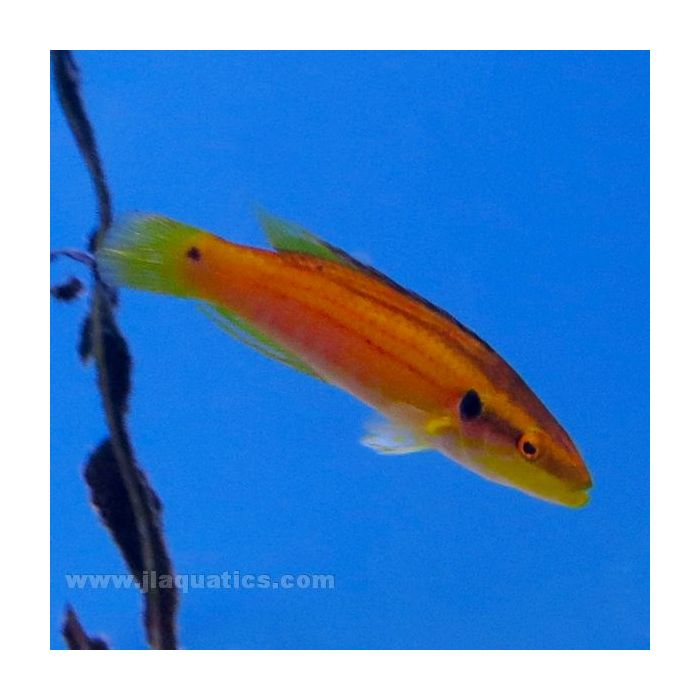Candy Stripe Hogfish (Asia Pacific)
Hogfish are related to and share many qualities with wrasses. They are easy to keep and have healthy appetites for invertebrates, especially shrimp, however larger species may attack crustaceans, snails, worms and starfish among others. They do not bother corals or anemones, but may flip over rocks in their search for food. Large species may also bully or eat small fish, but they are typically nonaggressive with other large fish as long as they have a different shape. Similarly shaped fish are seen as a threat and may be targeted.
They will hide within the rockwork to sleep, but when threatened may dive into the sand for protection. They can even swim under the sand to avoid predators. A fine sand bed of at least 2-3 inches will help them feel secure. Rocks should be placed on the aquarium glass and sand poured around them to eliminate the danger of a cave-in when the hogfish dives in.
Hogfish feel most secure when there is plenty of live rock to hide in, as well as open space for swimming. They should be fed two to three times a day plenty of high quality meaty items, frozen Mysis shrimp, krill, chopped seafood, marine algae and Spirulina. They usually learn to take dry foods as well.
A delightful fish, the colorful Candy Stripe hogfish is so bright it nearly glows. Super saturated lemon yellow covers it from nose to tail, with contrasting scarlet horizontal stripes and a small dot before its tail. A dramatic dark eyespot is behind its gill cover, and another on its dorsal fin. It maintains its bright colors when mature, typically with the red stripes becoming more bold. Males and females are identical. It is one of the smallest and most peaceful of the hogfish, rarely bothering its fish tank mates. It is less likely than other hogfish to bother invertebrates, and even large shrimp may be safe if they are added before the hogfish. It grows up to 4 inches and requires an aquarium of at least 50 gallons.
















